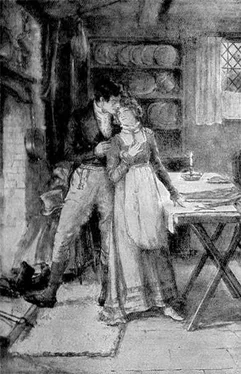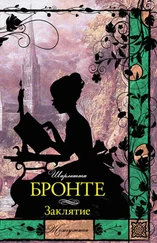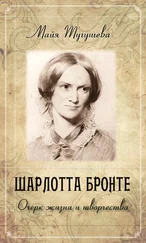Шарлотта Бронте - Shirley
Здесь есть возможность читать онлайн «Шарлотта Бронте - Shirley» весь текст электронной книги совершенно бесплатно (целиком полную версию без сокращений). В некоторых случаях можно слушать аудио, скачать через торрент в формате fb2 и присутствует краткое содержание. Год выпуска: 2014, Издательство: epubBooks Classics, Жанр: Классическая проза, на английском языке. Описание произведения, (предисловие) а так же отзывы посетителей доступны на портале библиотеки ЛибКат.
- Название:Shirley
- Автор:
- Издательство:epubBooks Classics
- Жанр:
- Год:2014
- ISBN:нет данных
- Рейтинг книги:3 / 5. Голосов: 1
-
Избранное:Добавить в избранное
- Отзывы:
-
Ваша оценка:
- 60
- 1
- 2
- 3
- 4
- 5
Shirley: краткое содержание, описание и аннотация
Предлагаем к чтению аннотацию, описание, краткое содержание или предисловие (зависит от того, что написал сам автор книги «Shirley»). Если вы не нашли необходимую информацию о книге — напишите в комментариях, мы постараемся отыскать её.
Shirley — читать онлайн бесплатно полную книгу (весь текст) целиком
Ниже представлен текст книги, разбитый по страницам. Система сохранения места последней прочитанной страницы, позволяет с удобством читать онлайн бесплатно книгу «Shirley», без необходимости каждый раз заново искать на чём Вы остановились. Поставьте закладку, и сможете в любой момент перейти на страницу, на которой закончили чтение.
Интервал:
Закладка:
"Lord, come quickly!"
The Evening flushed full of hope; the Air panted; the Moon—rising before—ascended large, but her light showed no shape.
"Lean towards me, Eva. Enter my arms; repose thus."
"Thus I lean, O Invisible but felt! And what art thou?"
"Eva, I have brought a living draught from heaven. Daughter of Man, drink of my cup!"
"I drink: it is as if sweetest dew visited my lips in a full current. My arid heart revives; my affliction is lightened; my strait and struggle are gone. And the night changes! the wood, the hill, the moon, the wide sky—all change!"
"All change, and for ever. I take from thy vision darkness; I loosen from thy faculties fetters! I level in thy path obstacles; I with my presence fill vacancy. I claim as mine the lost atom of life. I take to myself the spark of soul—burning heretofore forgotten!"
"O take me! O claim me! This is a god."
"This is a son of God—one who feels himself in the portion of life that stirs you. He is suffered to reclaim his own, and so to foster and aid that it shall not perish hopeless."
"A son of God! Am I indeed chosen?"
"Thou only in this land. I saw thee that thou wert fair; I knew thee that thou wert mine. To me it is given to rescue, to sustain, to cherish mine own. Acknowledge in me that Seraph on earth named Genius."
"My glorious Bridegroom! true Dayspring from on high! All I would have at last I possess. I receive a revelation. The dark hint, the obscure whisper, which have haunted me from childhood, are interpreted. Thou art He I sought. Godborn, take me, thy bride!"
"Unhumbled, I can take what is mine. Did I not give from the altar the very flame which lit Eva's being? Come again into the heaven whence thou wert sent."
That Presence, invisible but mighty, gathered her in like a lamb to the fold; that voice, soft but all–pervading, vibrated through her heart like music. Her eye received no image; and yet a sense visited her vision and her brain as of the serenity of stainless air, the power of sovereign seas, the majesty of marching stars, the energy of colliding elements, the rooted endurance of hills wide based, and, above all, as of the lustre of heroic beauty rushing victorious on the Night, vanquishing its shadows like a diviner sun.
Such was the bridal hour of Genius and Humanity. Who shall rehearse the tale of their after–union? Who shall depict its bliss and bale? Who shall tell how He between whom and the Woman God put enmity forged deadly plots to break the bond or defile its purity? Who shall record the long strife between Serpent and Seraph:—How still the Father of Lies insinuated evil into good, pride into wisdom, grossness into glory, pain into bliss, poison into passion? How the "dreadless Angel" defied, resisted, and repelled? How again and again he refined the polluted cup, exalted the debased emotion, rectified the perverted impulse, detected the lurking venom, baffled the frontless temptation—purified, justified, watched, and withstood? How, by his patience, by his strength, by that unutterable excellence he held from God—his Origin—this faithful Seraph fought for Humanity a good fight through time; and, when Time's course closed, and Death was encountered at the end, barring with fleshless arm the portals of Eternity, how Genius still held close his dying bride, sustained her through the agony of the passage, bore her triumphant into his own home, Heaven; restored her, redeemed, to Jehovah, her Maker; and at last, before Angel and Archangel, crowned her with the crown of Immortality?
Who shall of these things write the chronicle?
"I never could correct that composition," observed Shirley, as Moore concluded. "Your censor–pencil scored it with condemnatory lines, whose signification I strove vainly to fathom."
She had taken a crayon from the tutor's desk, and was drawing little leaves, fragments of pillars, broken crosses, on the margin of the book.
"French may be half forgotten, but the habits of the French lesson are retained, I see," said Louis. "My books would now, as erst, be unsafe with you. My newly–bound St. Pierre would soon be like my Racine—Miss Keeldar, her mark, traced on every page."
Shirley dropped her crayon as if it burned her fingers.
"Tell me what were the faults of that devoir ?" she asked. "Were they grammatical errors, or did you object to the substance?"
"I never said that the lines I drew were indications of faults at all. You would have it that such was the case, and I refrained from contradiction."
"What else did they denote?"
"No matter now."
"Mr. Moore," cried Henry, "make Shirley repeat some of the pieces she used to say so well by heart."
"If I ask for any, it will be 'Le Cheval Dompté,'" said Moore, trimming with his penknife the pencil Miss Keeldar had worn to a stump.
She turned aside her head; the neck, the clear cheek, forsaken by their natural veil, were seen to flush warm.
"Ah! she has not forgotten, you see, sir," said Henry, exultant. "She knows how naughty she was."
A smile, which Shirley would not permit to expand, made her lip tremble; she bent her face, and hid it half with her arms, half in her curls, which, as she stooped, fell loose again. "Certainly I was a rebel," she answered.
"A rebel!" repeated Henry. "Yes; you and papa had quarrelled terribly, and you set both him and mamma, and Mrs. Pryor, and everybody, at defiance. You said he had insulted you―"
"He had insulted me," interposed Shirley.
"And you wanted to leave Sympson Grove directly. You packed your things up, and papa threw them out of your trunk; mamma cried, Mrs. Pryor cried; they both stood wringing their hands begging you to be patient; and you knelt on the floor with your things and your up–turned box before you, looking, Shirley, looking—why, in one of your passions. Your features, in such passions, are not distorted; they are fixed, but quite beautiful. You scarcely look angry, only resolute, and in a certain haste; yet one feels that at such times an obstacle cast across your path would be split as with lightning. Papa lost heart, and called Mr. Moore."
"Enough, Henry."
"No, it is not enough. I hardly know how Mr. Moore managed, except that I recollect he suggested to papa that agitation would bring on his gout; and then he spoke quietly to the ladies, and got them away; and afterwards he said to you, Miss Shirley, that it was of no use talking or lecturing now, but that the tea–things were just brought into the schoolroom, and he was very thirsty, and he would be glad if you would leave your packing for the present and come and make a cup of tea for him and me. You came; you would not talk at first, but soon you softened and grew cheerful. Mr. Moore began to tell us about the Continent, the war, and Bonaparte—subjects we were both fond of listening to. After tea he said we should neither of us leave him that evening; he would not let us stray out of his sight, lest we should again get into mischief. We sat one on each side of him. We were so happy. I never passed so pleasant an evening. The next day he gave you, missy, a lecture of an hour, and wound it up by marking you a piece to learn in Bossuet as a punishment–lesson—'Le Cheval Dompté.' You learned it instead of packing up, Shirley. We heard no more of your running away. Mr. Moore used to tease you on the subject for a year afterwards."
"She never said a lesson with greater spirit," subjoined Moore. "She then, for the first time, gave me the treat of hearing my native tongue spoken without accent by an English girl."
"She was as sweet as summer cherries for a month afterwards," struck in Henry: "a good hearty quarrel always left Shirley's temper better than it found it."
"You talk of me as if I were not present," observed Miss Keeldar, who had not yet lifted her face.
Читать дальшеИнтервал:
Закладка:
Похожие книги на «Shirley»
Представляем Вашему вниманию похожие книги на «Shirley» списком для выбора. Мы отобрали схожую по названию и смыслу литературу в надежде предоставить читателям больше вариантов отыскать новые, интересные, ещё непрочитанные произведения.
Обсуждение, отзывы о книге «Shirley» и просто собственные мнения читателей. Оставьте ваши комментарии, напишите, что Вы думаете о произведении, его смысле или главных героях. Укажите что конкретно понравилось, а что нет, и почему Вы так считаете.











